 Petzlover
Petzlover Oriental Longhair is originated from United Kingdom but Persian is originated from Iran. Both Oriental Longhair and Persian are of same weight. Oriental Longhair may live 3 years more than Persian. Both Oriental Longhair and Persian has same litter size. Both Oriental Longhair and Persian requires Moderate Maintenance.
Oriental Longhair is originated from United Kingdom but Persian is originated from Iran. Both Oriental Longhair and Persian are of same weight. Oriental Longhair may live 3 years more than Persian. Both Oriental Longhair and Persian has same litter size. Both Oriental Longhair and Persian requires Moderate Maintenance.
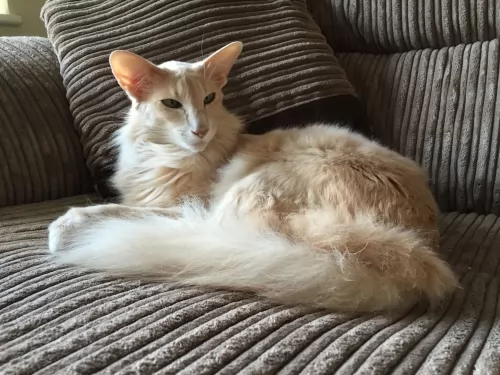 Your Oriental Longhair cat has his foundations in the Siamese breed. The Siamese came from Thailand to the UK in the 1800s.
Your Oriental Longhair cat has his foundations in the Siamese breed. The Siamese came from Thailand to the UK in the 1800s.
Sometimes a litter of Siamese kittens produced a long-haired variety but in the 1950s breeders started honing in on these longer haired Siamese cats.
Various crossings took place and Oriental Shorthairs came about. By breeding these Shorthairs with Balinese cats, the Oriental Longhair came about in the 1970s.
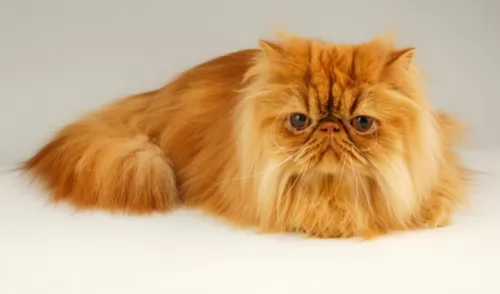 Cat lovers the world over know the Persian cat very well. It's a beautiful long-haired cat breed with its familiar round face and blunt muzzle.
Cat lovers the world over know the Persian cat very well. It's a beautiful long-haired cat breed with its familiar round face and blunt muzzle.
It is not really known when long-haired cats first appeared, or where the Persian originated but their history stems from Persia or Iran as it is known today, where it seems they were first sighted.
The cats were grey-coated and some were white and soon the cats arrived in Britain. They were introduced to the United States in the 1900s. The cat was developed first by the English, and then also by American breeders after the Second World War and the breeding of these cats has also meant a lot of coat colors.
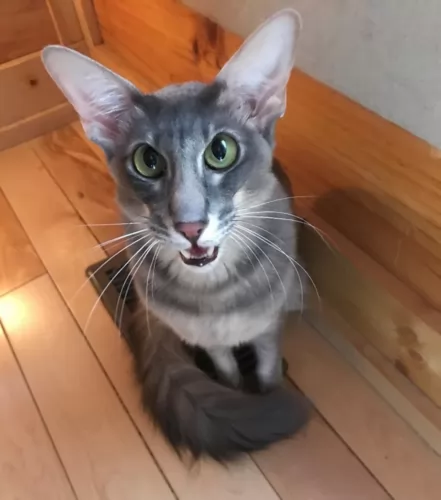 The Oriental Longhair is a medium-sized cat with a fairly long, muscular, lean body. The Oriental Longhair actually resembles the Siamese cat.
The Oriental Longhair is a medium-sized cat with a fairly long, muscular, lean body. The Oriental Longhair actually resembles the Siamese cat.
They also come in an outstanding array of colors and patterns with the coat being long and silky. The coat can be a solid color but you can also find tabby-type coats as well as tipped coats. The cat doesn’t have an undercoat and coat lies fairly flat against the body. You will also hear it being referred to as a semi-longhair.
The tail is attractive and forms quite a bushy plume.
The Oriental Longhair cat has almond-shaped green eyes. If you see the white Orientals, they can have green or blue eyes. They can also be odd-eyed.
These cats are intelligent, curious, and good-natured and they love to talk. Therefore it is important that such a cat breed have a home where there is plenty of company.
They’re active cats too, loving to play and bound and leap. He'll want to willingly join in with some of your games. The cat will certainly need some exciting toys to keep him occupied.
They are loyal cats and become loving and devoted to their human family, getting on well with children in the home as well as other pets.
They don’t like being left alone at all and will prefer to have company, even if it is from another pet.
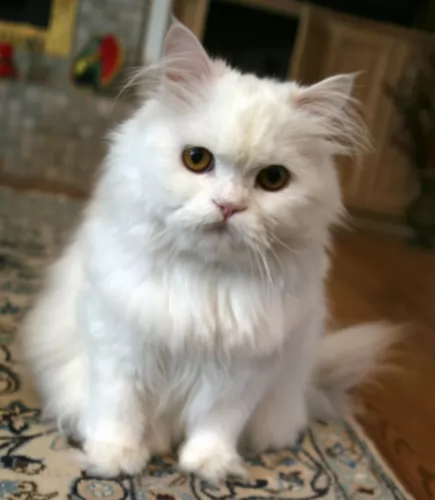 The Persian cat is a medium- to large-sized cat and is heavily boned. He can weigh between 3 and 6kg.
The Persian cat is a medium- to large-sized cat and is heavily boned. He can weigh between 3 and 6kg.
He has stocky legs, a thick neck, small ears, round head, round eyes, and the face is flat or blunt. The kittens are gorgeous balls of fluff.
The coat of the Persian is thick, long, and silky. People many times think only of a white Persian, when in fact the cat comes in many colors and patterns. Eye color for the cat can be blue, green, brown, copper or even odd-eyed.
The Persian isn’t the most active of cats, so attention will need to be given to exercising the cat so as to manage his weight. This cat will also need to have his nutrition controlled to stay in shape and in good health.
Persians enjoy games with their human family and will need some toys to encourage play and exercise.
He is placid and calm but that doesn’t mean he can’t have bursts of energy. They’re quieter than other cats, are sweet-natured, preferring to live in quieter, less boisterous households.
They aren’t loudly vocal but communicate with their eyes and their soft voices. They won’t get on well with small, noisy children but can be loving pets and companions of older children who allow them their own space.
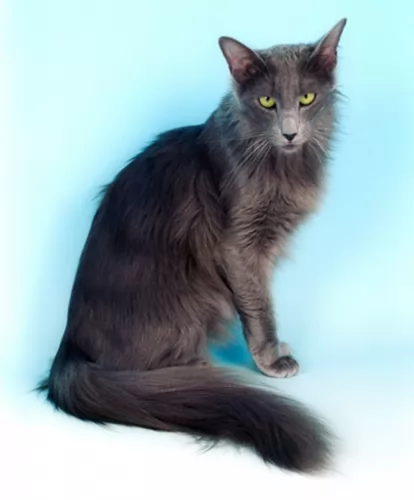 Your Oriental Longhair is such a friendly, lively cat and he makes a splendid companion. It is an inquisitive cat and likes to be part of the activity in the household.
Your Oriental Longhair is such a friendly, lively cat and he makes a splendid companion. It is an inquisitive cat and likes to be part of the activity in the household.
He is a social, talkative cat and has always got a lot to say/ They love the attention of their human family and don’t like being separated too long from them.
When you get one of these cats, you get both an entertainer and a friend.
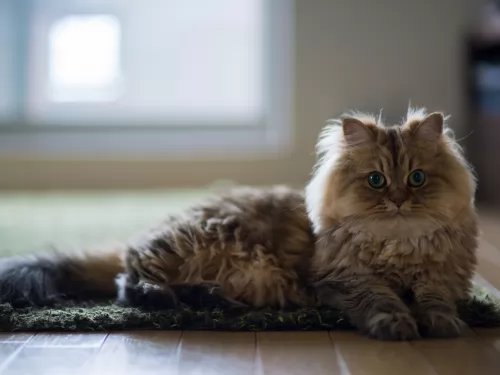 The amicable personality of the Persian cat makes it easy to have these cats in your home. The long hair becomes a bit of an issue as the cat sheds quite a bit.
The amicable personality of the Persian cat makes it easy to have these cats in your home. The long hair becomes a bit of an issue as the cat sheds quite a bit.
They’re sweet, quiet cats and they don’t demand attention from you. They are more than happy just lying quietly in a warm spot. They are calm, loving cats and it's no wonder that they are still such a popular breed of cat.
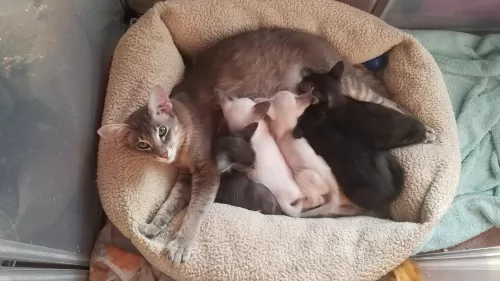 The Oriental Longhair is generally considered a healthy breed. Because the cat can be prone to some inherited conditions, it is always a wise move to buy a kitten from a reputable breeder.
The Oriental Longhair is generally considered a healthy breed. Because the cat can be prone to some inherited conditions, it is always a wise move to buy a kitten from a reputable breeder.
A couple of these diseases to look out for include Progressive Retinol Atrophy which is a degenerative condition that can lead to blindness.
Also, look out for periodontal disease which is common in many cat breeds.
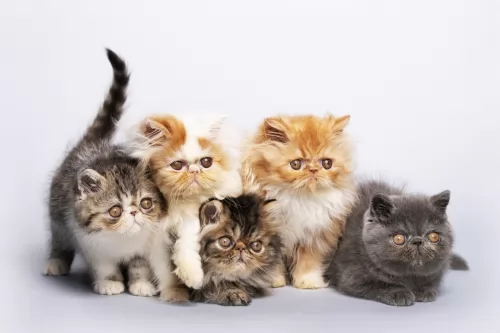 The structure of this cat’s head can mean some health problems. Hereditary Polycystic kidney disease is prevalent with the Persian cat. It is an inherited condition that causes cysts to form in the kidneys. These cysts are actually present from birth, growing larger over time and interfering with kidney function and ending in kidney failure.
The structure of this cat’s head can mean some health problems. Hereditary Polycystic kidney disease is prevalent with the Persian cat. It is an inherited condition that causes cysts to form in the kidneys. These cysts are actually present from birth, growing larger over time and interfering with kidney function and ending in kidney failure.
Also, with a larger breed cat such as the Persian, hip dysplasia is a problem.
Persians are also susceptible to malocclusion which means ‘incorrect bite’. This particular condition can affect the cat’s ability to grasp and actually hold food. So much so in fact, that now pet food manufacturing companies have even developed specially-shaped kibble to cater particularly for the Persian.
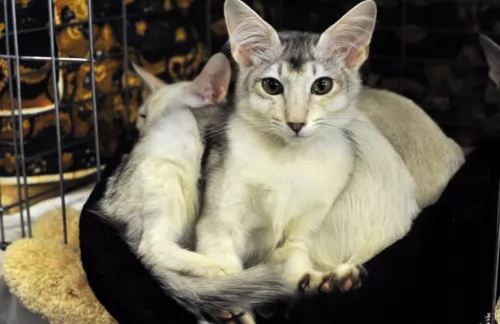 This is a slim cat and you can easily tell when he has put on weight. Be very careful with how much you feed your cat and what you feed him.
This is a slim cat and you can easily tell when he has put on weight. Be very careful with how much you feed your cat and what you feed him.
Cats are carnivores and you need to ensure that his diet is rich in meaty ingredients. These cats have long slim legs and extra weight can put pressure on the cat’s joints. Keep your cat lean and healthy. If in any doubt about diet for your cat, speak to your vet, Always ensure a bowl of fresh, cool water.
Prepare to have a cat included in your family. Invest in food and water bowls, a cat bed, grooming brushes, toys, climbing tree, scratching post and litter box. A cat box for transporting your pet to the vet is also a good idea.
The Oriental Longhair loves to leap up into high areas so he will need a climbing tree. Try to get your cat out into the sunshine where possible and allow him to climb into a tree.
The cat’s medium- to long hair will require brushing once or twice a week. When you brush your pet gently but purposefully, he loves it and it becomes a bonding session.
Provide your cat with a litterbox and make sure to clean out the box every day. You can do that by buying a small plastic rake at the pet shop and it keeps the litter nice and even for your pet.
Have your cat neutered or spayed to prevent unwanted kittens.
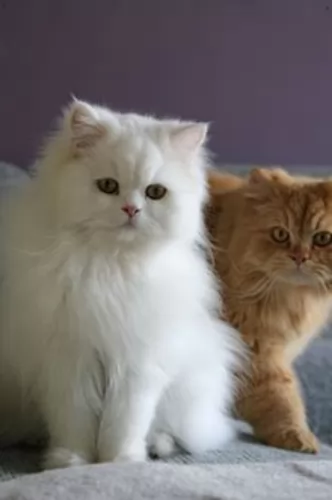 The Persian cat’s coat is long and silky and because he is a fairly heavy shedder, he will require regular brushing – certainly once or twice a week to get rid of that loose hair. It is important to brush and also cut the hair so as to get rid of the tangled knots that form.
The Persian cat’s coat is long and silky and because he is a fairly heavy shedder, he will require regular brushing – certainly once or twice a week to get rid of that loose hair. It is important to brush and also cut the hair so as to get rid of the tangled knots that form.
While brushing your Persian, make sure that his eyes and nose are clear. This is important because the flat face creates problems with these cats.
Excellent cat food for your Persian involves reading labels and understanding what brands are best for your beautiful cat. The Persian cat is a carnivore and will require high-quality food rich in protein.
Speak to your vet if you are in any doubt about the best food for your cat’s health and wellbeing. Make sure your pet has a constant supply of fresh, cool water.
Make sure to keep the litter box clean. Buy a small rake from the pet shop and rake up your cat's feces every single day and dispose of them.